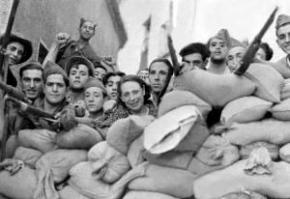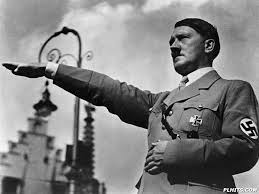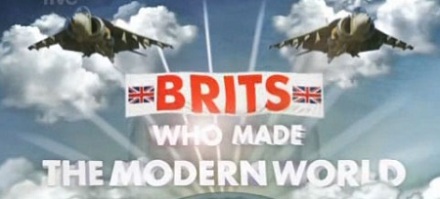From Pacific Overtures
OLD MAN
Pardon me, I was there.
RECITER
You were where?
OLD MAN
At the treaty house.
RECITER
At the treaty house?
OLD MAN
There was a tree …
RECITER
Which was where?
OLD MAN
Very near.
RECITER
Over here?
OLD MAN
Maybe over there,
But there were trees then, everywhere.
May I show you?
RECITER
If you please.
OLD MAN
There were trees
Then, everywhere.
RECITER
But you were there.
OLD MAN
And I was there!
Let me show you.
RECITER
If you please.
OLD MAN
(tries to climb)
I was younger then …
(tries again)
I was good at climbing trees …
(again)
I was younger then …
(again)
I saw everything! …
(again)
I was hidden all the time …
(again)
It was easier to climb …
(again)
I was younger then …
(again)
I saw everything! …
(again)
Where they came and where they went —
I was part of the event.
I was someone in a tree!
(tries once more)
I was younger then!
(Suddenly, a Young Boy appears, scurries across the stage, and up the tree.)
BOY
(to the Old Man)
Tell him what I see!
OLD MAN
I am in a tree.
I am ten.
I am in a tree.
BOY
I was younger then.
OLD MAN
In between the eaves I can see —
(to the Boy)
Tell me what I see.
(to the Reciter)
I was only ten.
BOY
I see men and matting.
Some are old, some chatting.
OLD MAN
If it happened, I was there!
BOTH
I saw/see everything!
OLD MAN
I was someone in a tree.
BOY
Tell him what I see!
OLD MAN
Some of them have gold on their coats.
BOY
One of them has gold.
(to the Reciter)
He was younger then.
OLD MAN
Someone crawls around passing notes —
BOY
Someone very old —
OLD MAN
(to the Reciter)
He was only ten.
BOY
And there’s someone in a tree —
OLD MAN
— Or the day is incomplete.
BOTH
Without someone in a tree,
Nothing happened here.
OLD MAN
I am hiding in a tree.
BOY
I’m a fragment of the day.
BOTH
If I weren’t, who’s to say
Things would happen here the way
That they happened here?
OLD MAN
I was there then.
BOY
I am here still.
It’s the fragment, not the day.
OLD MAN
It’s the pebble, not the stream.
BOTH
It’s the ripple, not the sea.
Not the building but the beam,
Not the garden but the stone,
Not the treaty house,
Someone in a tree.
WARRIOR
(slides panel open underneath the house)
Pardon me, I am here —
If you please, I am also here —
OLD MAN
They kept drinking cups of tea.
BOY
They kept sitting on the floor.
BOTH
They drank many cups of tea.
(to each other)
No, we told him that before.
WARRIOR
If you please, I am here.
RECITER
You are where?
WARRIOR
In the treaty house.
RECITER
In the treaty house?
WARRIOR
Or very near.
RECITER
Can you hear?
WARRIOR
I’m below.
RECITER
So I notice.
WARRIOR
Underneath the floor,
And so I can’t see anything.
I can hear them,
But I can’t see anything.
RECITER
But you can hear?
WARRIOR
But I can hear.
Shall I listen?
RECITER
If you please.
WARRIOR
I can hear them now …
I shall try to shift my knees …
I can hear them now …
I hear everything …
I’m the part that’s underneath,
With my sword inside my sheath.
I can hear them now …
One is over me …
If they knock, then I appear.
I’m a part of what I hear.
I’m the fragment underneath.
I can hear them now!
RECITER, OLD MAN, BOY
Tell us what you hear!
WARRIOR
First I hear a creak and a thump.
Now I hear a clink …
Then they talk a bit …
Many times they shout when they speak.
Other times they think.
Or they argue it …
I hear floorboards groaning …
Angry growls … Much droning …
Since I hear them, they are there,
As they argue it.
I’m the listener underneath.
BOY
(peering into the house)
Someone reads a list
From a box.
WARRIOR
(listening)
Someone talks of laws.
OLD MAN
Then they fan a bit.
BOY
Someone bangs a fist.
WARRIOR
Someone knocks.
OLD MAN
Now there was a pause.
ALL
Then they argue it:
WARRIOR
«But we want …»
«No, you can’t
And we won’t …»
«But we need it,
And we want …»
«Will you grant — ?»
«If you don’t …»
«We concede it …»
OLD MAN WARRIOR
And they sat I can hear
Through the night Them.
And they lit
Yellow tapers. BOY
I was I’m a And they
There Fragment of the Chat
Then. Day. And they fight
And they sit
Signing papers.
If I If I I am
Weren’t, who’s to Weren’t, who’s to There
Say Say Still.
Things would Things would If I
Happen here the Happen here the Weren’t who’s to
Way Way Say
That they’re That they’re That they’re
Happening? Happening? Happening?
ALL
It’s the fragment, not the day.
It’s the pebble, not the stream.
It’s the ripple, not the sea
That is happening.
Not the building but the beam,
Not the garden but the stone,
Only cups of tea
And history
And someone in a tree.
This song is from a play «Pacific Overtures», based in Commander Perry’s expedition to Japan in 1853. This scene talks about an old man, as a boy in a tree, explaining his version of that day. They both sing but, as I got it, they are the same person. Later, a young warrior appears sitting under the floorboard of the pavilion explaining his version. They are, as they say, «A fragment of the day», «If i weren’t who’s to say things would happen here the way they’re happening?»
As they keep telling their story, we can realize that neither they know what happened that they, as the boy couldn’t hear and the warrior couldn’t see; Making oral history seem awful, and unknown with some lies and mistakes, such as rumors. 






 (
(

